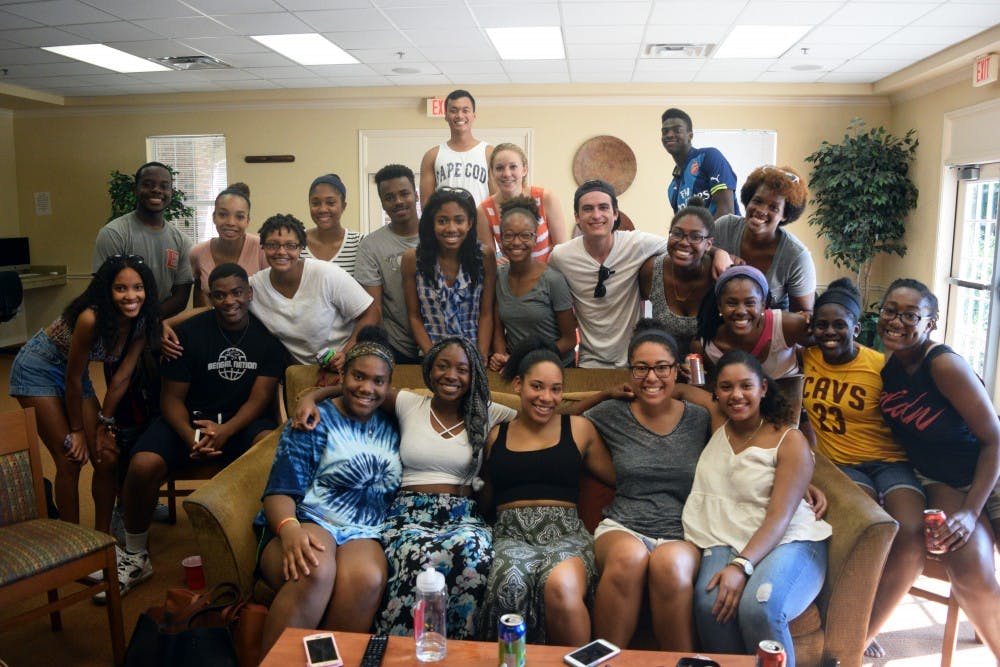Jamie Butler and Jazmine Langley had different experiences with mentorship, but that common thread has connected them going forward at Elon University.
Butler, assistant director of the Center for Race, Ethnicity and Diversity Education (CREDE) said she didn’t have a specific mentor in high school or college and was forced to navigate varying challenges without reassuring guidance. Langley, however, said she had multiple mentors in her life and doubts she would be at Elon without their help.
One of the 42 recommendations spawned from the Social Climate Taskforce on Out-of-Class Engagement was to promote mentoring on campus between students and faculty, and Butler said she could not agree more with the proposal.
“I think it’s beneficial,” Butler said. “With the busy culture at Elon, I can definitely see how some students would feel lost and need to know who to go to and where to go to and how to connect. I think having a mentor would ease that anxiety.”
Butler admitted she endured spurs of anger and frustration in her undergraduate years — something she said would have been different if she had a mentor. Aside from her daily duties at the CREDE, Butler heads the Student Mentors Advising Rising Talent (SMART) program, an initiative that pairs freshmen minority students with upperclassmen to create bonds. Butler said she wants to expand SMART to include faculty and staff — which would align with the Task Force’s recommendation. Langley participated in SMART last year, and now she is an administrative leader who forms the mentor-mentee pairs. She said even though she had a potent mentorship influence before coming to Elon, SMART was the one of the determining pieces to help her find her footing.
“I would definitely say that SMART was a great asset to me last year as a first-year student,” Langley said. “For me personally, I had great mentors over the year, and with Elon being a small campus, I thought SMART was going to be a great benefit to us.”
Langley said SMART has continued to grow greatly since last year, with almost 40 potential mentors wanting to be involved. While awareness for the importance of mentoring is growing on campus, Butler said a lot more can be done to ensure everyone has a,“big brother or big sister.”
“I would hate to see Elon just say, ‘Oh, we need to make all of these mentoring programs,’”Butler said. “It’s about ensuring — both formally and informally — students being fostered into great connections with students, faculty and staff. For me personally, I’m asking myself how I’m engaging with students as much as I can.”


